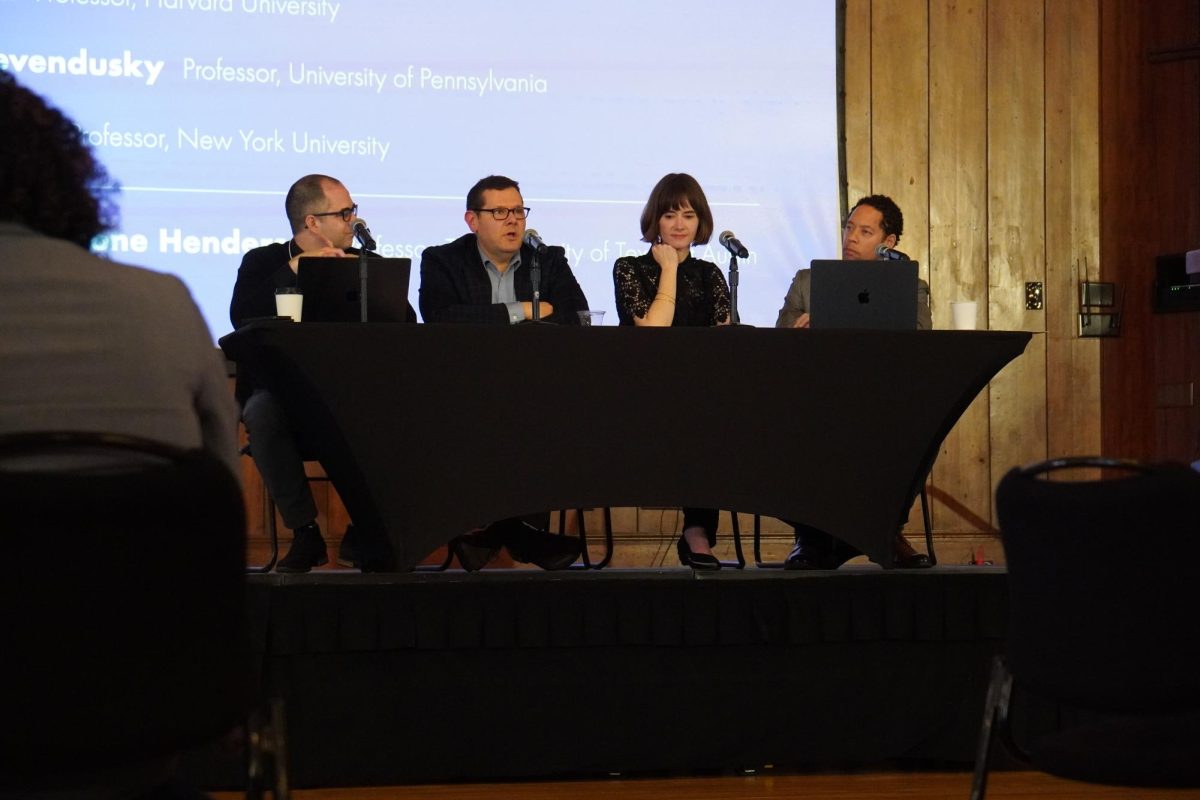Seven months after she said she was sexually assaulted, Sara Ross was just trying to forget. Forgetting became a lot harder when she found out the person she filed against was switching into one of her classes, and there was nothing she could do to stop it.
Ross, a Plan II and social work sophomore, didn’t initially report her assault to UT’s Title IX Office, but when the Office was told about it and asked her to come in for an interview in October, she decided to move forward with an investigation, thinking it could give her protection from sharing a classroom with him.
She was given a no-contact directive, which is standard for the investigation period of a Title IX case and means neither person is allowed to contact the other. Some time later, however, Ross realized this didn’t mean she had any protections in class.
“What I didn’t realize and what I was not told is that no-contact directives don’t cover classes and discussion sections,” Ross said. “It was like, if you don’t want to be in classes with him, that’s on you to figure out. I was so just upset and devastated.”
The interim period for a Title IX investigation is difficult for many students, who feel stuck in limbo while they wait for a resolution. But investigations can sometimes last several months, turning this limbo period into a painful purgatory for students sharing spaces on campus with those they accuse of assault.
Title IX Coordinator Krista Anderson said in some cases the Office can intervene when students have classes together, but moving them depends on a variety of factors, including whether or not there are alternative classes to move them into.
“We take into account that when both parties are in the same class together, it can potentially cause additional stress, trauma and emotional strain,” Anderson said. “We will work with the academic college or program to help assess available academic options for the person making the request while also balancing fair and equitable alternatives for all of the involved parties.”
The no-contact directive Ross thought would protect her from sharing a classroom with the person she filed against only applies to direct, intentional contact between the two people involved, Anderson said.
“What a no-contact directive is not able to do is … expect people to not be in certain places,” Anderson said. “Technically, both parties could, especially if they have similar schedules and they have classes in similar areas around campus, they may see each other. And that is not a violation of the no-contact directive.”
Ross ended up switching out of the class after the person she filed against was admitted. She said if her investigation doesn’t end up in her favor, she might drop out of the Plan II major. At about 170 sophomores, the major is so small she worries she will just have the same problem in the future.
Already running behind on her graduation plan because of stress after the initial incident last spring, Ross said she is concerned that if she has to keep switching out of classes it may take her even longer to graduate.
“I just want something that says we can’t be in classes together,” Ross said. “That’s literally all I wanted when I decided to give his name and start the investigation process.”
Checking over her shoulder
Ayana D’Aguilar, a Plan II, Islamic studies and South Asian Languages & Culture senior, also had a class in the same building as the student she filed a report against. She said she spent every minute of her time checking over her shoulder.
Just minutes after the emails notifying both parties of the Title IX investigation were sent out to both him and her, she ran into him.
“I could see it on his face, he was furious,” D’Aguilar said. “And I was so scared, I just flew into the nearest bathroom and had a panic attack. I don’t even know how to explain just how difficult it was for me to physically enter that space.”
D’Aguilar reported to the Title IX office last summer, and her investigation concluded in March. She is still waiting for a report, which can then be appealed by either party before the sanctions are finalized.
However, D’Aguilar is graduating this May before the process will likely be finished. She said she and a group of students were going to file another complaint to the Office of Inclusion and Equity about a different experience, but decided not to go through with it because they didn’t have faith the system would work for them in time.
“The interim period for a lot of us is chasing them down trying to get updates, trying to get factual, truthful answers,” D’Aguilar said. “You have to be so familiar with the system before you go into it.”
When the Office steps in
In some cases, the Title IX Office will intervene in the middle of an investigation. Alumna Catherine Smith said the actions taken by the Title IX Office during the interim period of her investigation helped her the most.
Before she graduated with degrees in history and UTeach liberal arts last year, Smith filed a complaint with the Title IX office against a former boyfriend. As the investigation was going on, the ex-boyfriend regularly showed up to her dormitory, her then-boyfriend’s house and contacted her friends.
After she made her case to the Title IX Office, the director at the time banned him from entering the specific area of Kinsolving Residence Hall that she lived in while the investigation was underway.
“Those interim steps were honestly the most helpful thing,” Smith said. “And those just came about because I was loud. I felt like they all believed me and did their best to try and do what they could to make me feel safe. Of course, it’s not enough. I still saw him constantly.”
In the end, Smith’s ex-boyfriend was given disciplinary probation.
Smith said she thinks she was able to get so much help from the Title IX Office during her investigation because she chose to be very proactive in her case.
“I chose to be very involved, because I was angry,” Smith said. “But for a lot of people that sort of raw feeling right after an abusive situation, some people just don’t have the emotional wherewithal during that process … it’s very traumatizing.”
Reaching for recovery
Anderson said the Title IX Office always offers students additional resources, such as Student Emergency Services, during their investigations. But some students, like Ross and D’Aguilar, find more support in the community of survivors on campus.
“It’s unfortunate how common my story is at UT,” Ross said. “It’s been a rough ride but I’ve also found a really strong community of survivors here and that’s what’s really carried me through.”
After going in for regular interviews for months, Ross told the Office she no longer wanted to be questioned because it was hard for her to regularly relive such a traumatic experience. Ross was not given a timeline for her investigation, but was told it could last into this fall.
Still considering leaving her major, and with months ahead if the case lasts as long as the Office said it might, she says the worst part isn’t the waiting — it’s the not knowing.
“I don’t know what’s going to happen if it’s going to turn out in his favor or my favor, I don’t know what’s going to happen after that,” Ross said. “And that scares the s— out of me, because I can’t prepare myself for what it’s going to be like to be at UT.”
Editor’s note: Catherine Smith is a pseudonym used to protect the privacy of individuals involved in the investigation.
Correction: The original version of this article did not specify that D'Aguilar and a group of other students were going to find another complaint to the Office of Inclusion and Equity, not the Title IX Office. The Texan regrets this error.





















